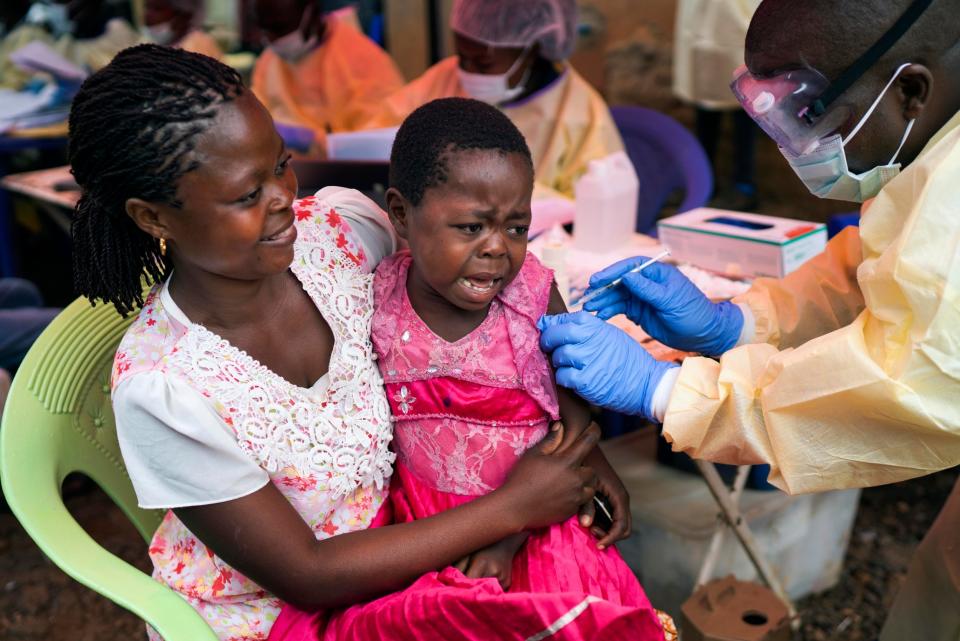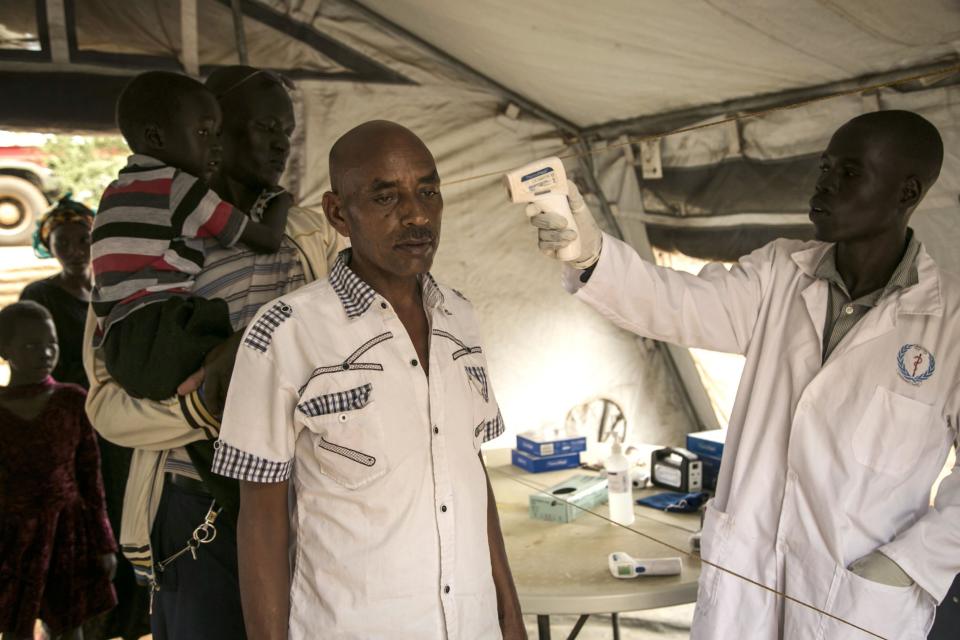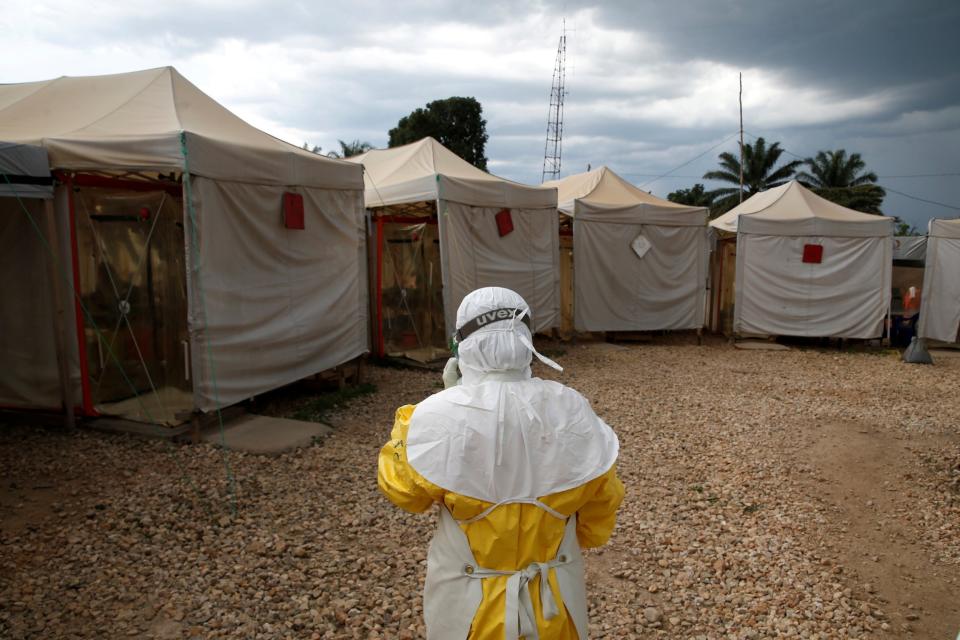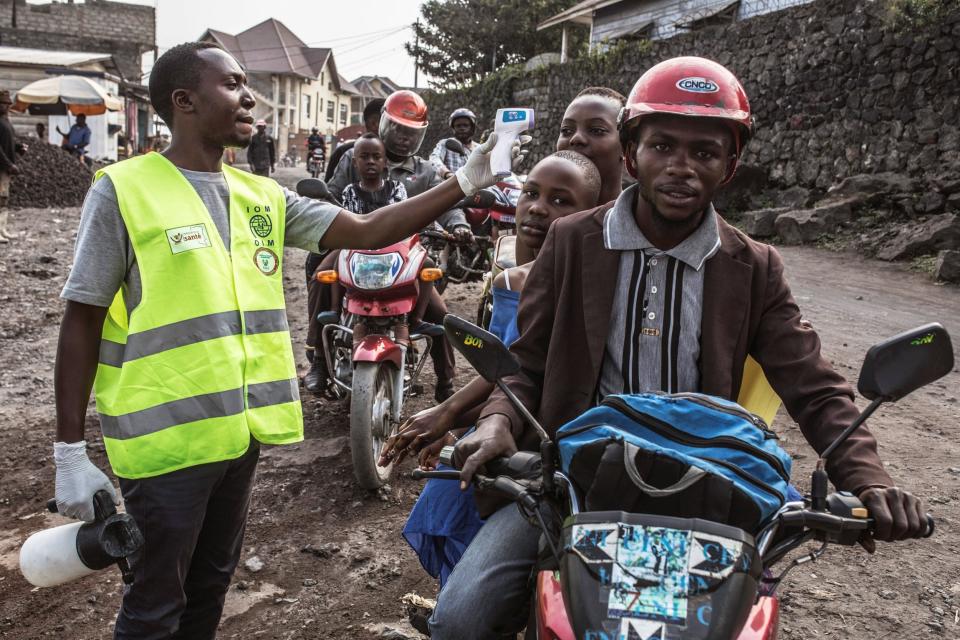Ebola outbreak in Congo declared global health emergency by World Health Organisation
The Ebola crisis in the Democratic Republic of Congo is now an international health emergency, the World Health Organisation (WHO) has announced.
The deadly virus has killed more than 1,600 people since August in the DRC, making it the second-worst Ebola outbreak in history.
The declaration comes days after a single case was confirmed in Goma, eastern Congo's largest city which is home to more than a million people.
"It is time for the world to take notice," WHO chief Tedros Adhanom Ghebreyesus told a news conference in Geneva on Wednesday.

The ‘public health emergency of international concern’ provision is the highest level of alarm the WHO can sound and has only been used four times previously.
This includes the Ebola epidemic that devastated parts of West Africa from 2014 to 2016, killing more than 11,000 people.
Doctors Without Borders president Dr. Joanne Liu president said she hoped the emergency designation would spark renewed response efforts from the international community.
"The reality check is that a year into the epidemic, it's still not under control, and we are not where we should be," she said.

"We cannot keep doing the same thing and expect different results."
The WHO defines a global emergency as an "extraordinary event" that constitutes a risk to other countries and requires a coordinated international response.
Last month, the outbreak spilled across the border for the first time when a family brought the virus into Uganda after attending the burial in Congo of an infected relative.
Even then, the expert committee advised against a declaration.

Wednesday's announcement prompted fear in eastern Congo, where many do business across borders and travel overseas.
But the WHO stopped short of saying borders should be closed, saying the risk of the disease spreading outside the region was not high.
Alexandra Phelan, a global health expert at Georgetown University Law Center, said Wednesday's declaration was long overdue.
"This essentially serves as a call to the international community that they have to step up appropriate financial and technical support," she said, while warning that countries should be wary of imposing travel or trade restrictions.
She explained such restrictions "would actually restrict the flow of goods and health care workers into affected countries so they are counterproductive.”

Future emergency declarations might be perceived as punishment and "might result in other countries not reporting outbreaks in the future, which puts us all at greater risk,” she added.
Mr Ghebreyesus stressed the international emergency "should not be used to stigmatise or penalise the very people who are most in need of our help," he said.
He also insisted that the declaration was not made to raise more money - even though WHO estimated "hundreds of millions" of dollars would be needed to stop the epidemic.
The US Agency for International Development applauded the decision and said USAID officials would "continue to scale up life-saving support" to end the outbreak.
The current outbreak is spreading in a turbulent Congo border region where dozens of rebel groups are active and where Ebola had not been experienced before.

Efforts to contain the virus have been scuppered by mistrust among wary locals, with some people deliberately evading health authorities.
The pastor who brought Ebola to Goma used several fake names to conceal his identity on his way to the city, Congolese officials said.
On Tuesday, the WHO said the man had died and health workers were scrambling to trace dozens of his contacts, including those who had travelled on the same bus.
Those working in the field say the outbreak is clearly taking a turn for the worse despite advances that include the widespread use of an experimental but effective Ebola vaccine.

Dr. Maurice Kakule was one of the first people to survive the current outbreak after he fell ill while treating a woman last July, before the outbreak had even been declared.
"What is clear is that Ebola is an emergency because the epidemic persists despite every possible effort to educate people," he told the Geneva meeting.
The organisation's emergency committee will meet again within three months to assess the situation.
Committee members will review whether the outbreak is still a global emergency and whether other measures are needed.

 Yahoo News
Yahoo News 